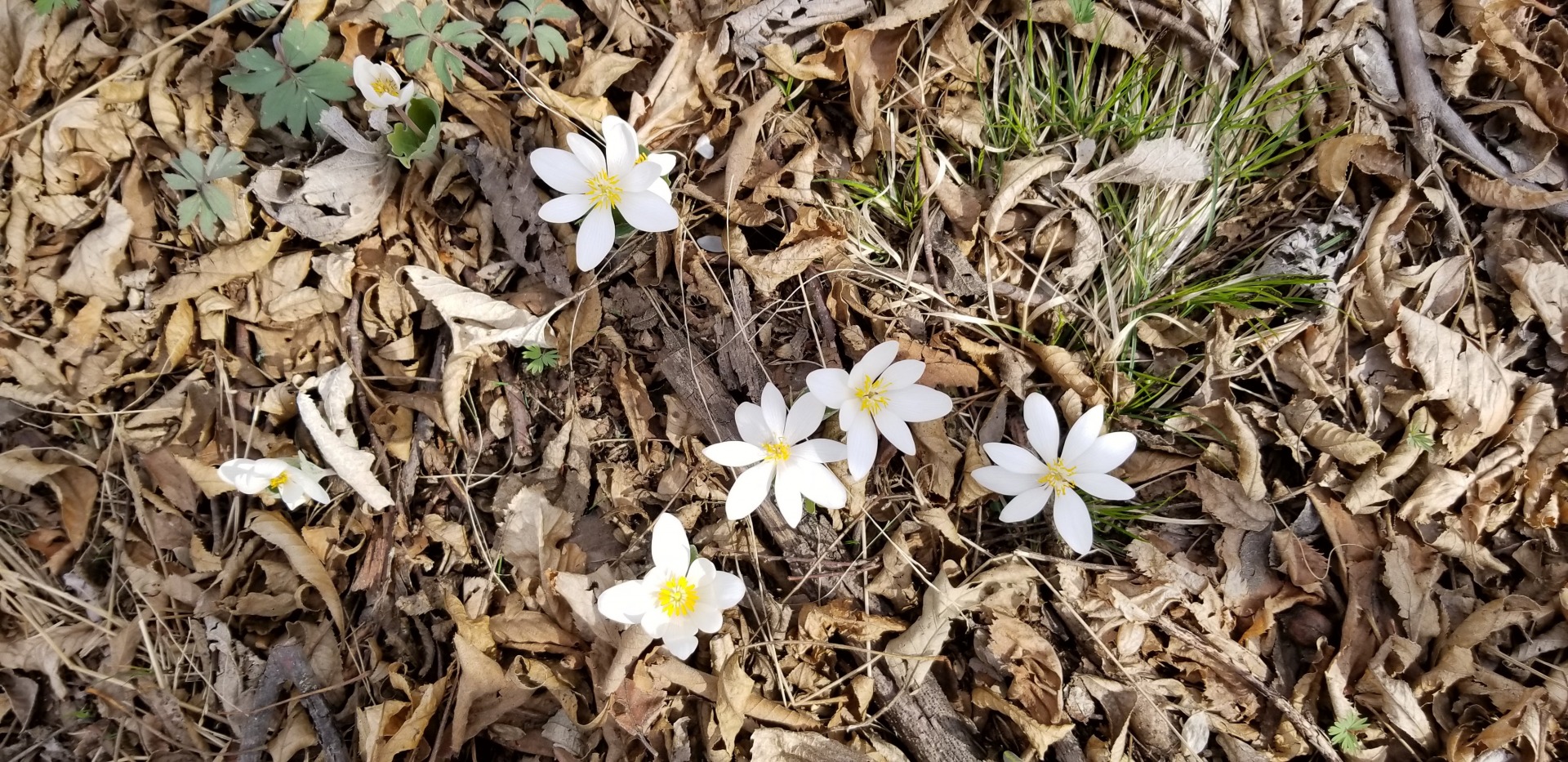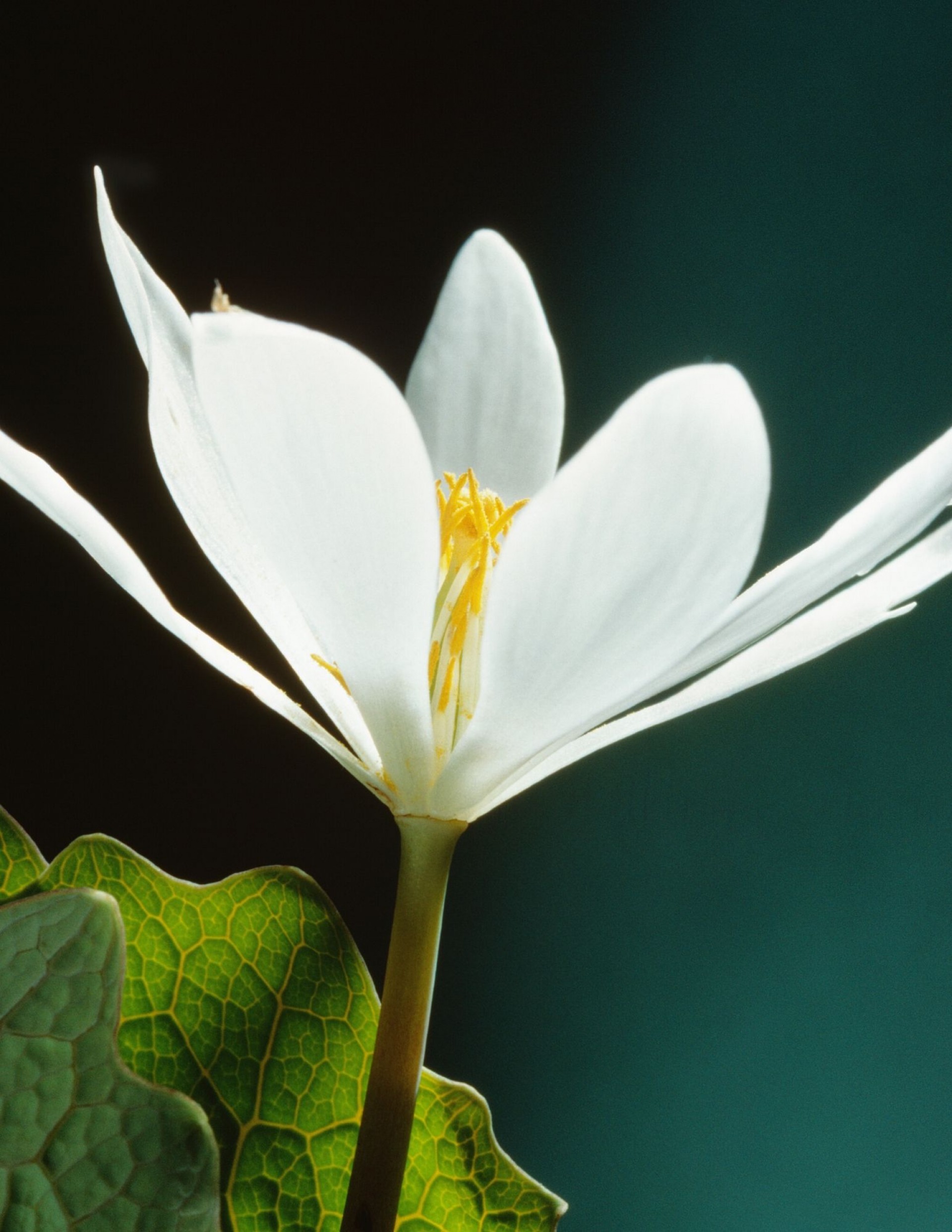These popular topics are heating up. Explore today's most viewed pages.
Bloodroot, Sanguinaria canadensis, is one of the earliest spring ephemerals and is common in Iowa’s deciduous woodland areas. This plant gets its common name, Bloodroot, and genus name, Sanguinaria (derived from the latin word sanguinarius which means “bleeding”), from the red sap in the leaf veins, lower stem, and roots that resembles blood. This red sap has been commonly used as a natural dye.

These fragile little flowers grow to around 6” and open in the morning to reveal 8-12 white petals and a sunny yellow center. The flowers follow the sun during the day and close at night.
 All parts of the plant are toxic and, therefore, are rarely eaten by mammals. However, bees are drawn to its pollen. Seeds are dispersed by ants attracted to the elaiosome, a fleshy structure attached to the seed that is rich in lipids and proteins, a food source to entice ants who will then carry the seed back to their nests. This process of dispersal is called myrmecochory.
All parts of the plant are toxic and, therefore, are rarely eaten by mammals. However, bees are drawn to its pollen. Seeds are dispersed by ants attracted to the elaiosome, a fleshy structure attached to the seed that is rich in lipids and proteins, a food source to entice ants who will then carry the seed back to their nests. This process of dispersal is called myrmecochory.
The medicinal use of bloodroot has been widespread for centuries. It was most recently used as an anti-plaque and anti-bacterial agent in toothpaste.
Bloodroot is blooming now at your county parks & will be visible (hopefully) throughout the month of April. Head outdoors & see if you spot this beautiful white flower on your next hike. Share your photos to Instagram & tag @pottcoconservation so we can all enjoy them!